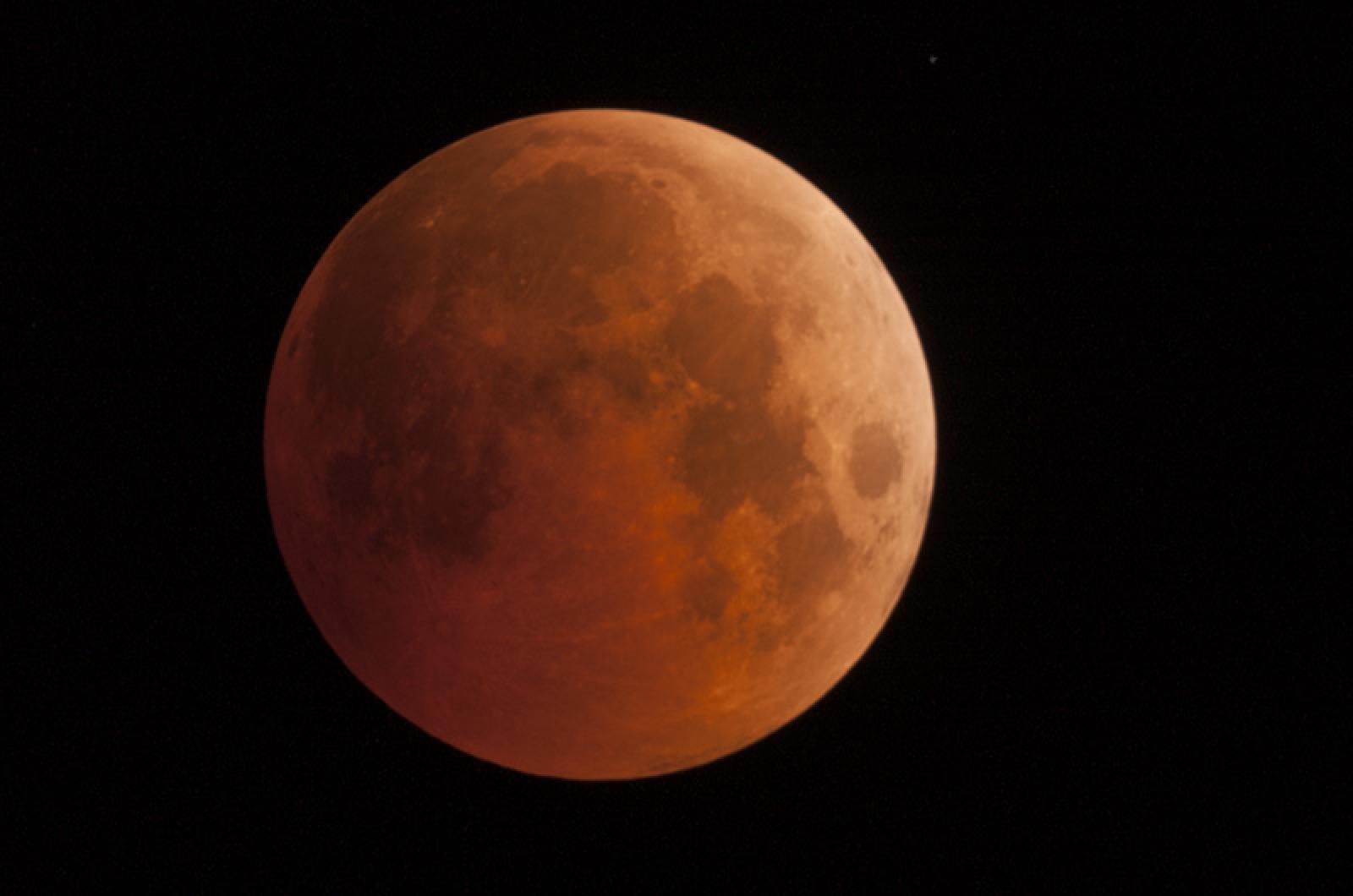A spectacular total lunar eclipse will grace Vineyard skies beginning on Sunday evening and continuing into Monday morning, but local astronomy enthusiasts are hoping weather forecasters are wrong or the eclipse will be hidden by a wintry mix of bad weather.
The lunar eclipse, caused when the earth passes directly between the sun and the moon, casting the earth’s shadow on the moon, will take about 3 1/2 hours. During the 62 minutes that the earth’s shadow completely covers the moon, the lunar orb will turn a reddish hue. It doesn’t turn completely dark, because some light refracting through the earth’s atmosphere still falls on the moon’s surface.
If the weather cooperates, the eclipse will be visible from Martha’s Vineyard fairly high in the eastern sky beginning Sunday evening at 10:33 p.m., when the earth’s shadow begins to fall on the outer edge of the moon. The total eclipse begins at 11:41 p.m.
Barbara Caseau has seen many lunar eclipses in her lifetime. The retired science teacher lives in Vineyard Haven, and is looking forward to seeing another.
“When I first got into astronomy, the immensity of the universe sort of blew my mind,” Ms. Caseau said. “We’re one little tiny part. That kind of thing makes me feel glad I’m here on this earth.
She said if the weather clears, she will set an alarm and look out over the harbor with her small telescope to see the spectacle.
“It’s always interesting,” Ms. Caseau said. “That’s our shadow. What we’re looking at is the earth’s shadow. To imagine we’re on that thing that’s crossing in front of the moon and making a shadow on it, blows my mind. That’s the sort of thing I get excited about it.”
A telescope is not necessary to view the eclipse, and this event will be even a little more visible than most. By astronomical coincidence, the lunar eclipse happens this weekend at a time when the moon’s orbit brings it closest to the earth, making it appear slightly larger to the eye. The phenomenon is called a “super moon” in some quarters.
Sean Moroney is familiar to many Islanders for his promotion of public astronomy through school events and an astronomy club on Martha’s Vineyard in past years. Though he has moved to Cape Cod where he is a science teacher, he still gets back to the Vineyard for a little star gazing once in a while.
“The Vineyard is still a pretty good spot, despite the encroachment of light pollution,” Mr. Moroni said. “The issue you have out in the ocean is you’ve got ambient moisture that rises from the seas. You want dry, cool air when you’re observing. Certainly in cooler weather you get some great skies, and it’s certainly much darker on the Vineyard than it’s going to be most anywhere on the mainland.”
Like Ms. Caseau, Mr. Moroni remains in awe of celestial events like a lunar eclipse, even though they are relatively common in astronomical timetables.
“It grounds us, it helps us understand, it really gives us perspective,” said Mr. Moroni. “There’s one world, it’s the only one we got. It helps to bring things back into sharp relief about the way we are. We’re in motion, we’re part of a system of various worlds and bodies. Sometimes it’s very easy to lose sight of that when we get caught up in our worldly affairs. You can look at the span of the universe and it really does put everything in perspective. You realize how we and all our problems, how small we are in the scheme of things.”




Comments
Comment policy »